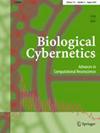我们从研究大脑中学到了哪些关于人工智能的知识?
IF 1.6
4区 工程技术
Q3 COMPUTER SCIENCE, CYBERNETICS
引用次数: 0
摘要
神经科学与人工智能(AI)有着悠久的交织历史。有人认为,神经科学的发现曾经(并将继续)推动新人工智能技术的发展。仔细研究这些历史性的说法,我们会发现一个更加细致入微的故事:人工智能研究人员从大脑中获得了一些松散的灵感,但想法大多流向了另一个方向。本文章由计算机程序翻译,如有差异,请以英文原文为准。
What have we learned about artificial intelligence from studying the brain?
Neuroscience and artificial intelligence (AI) share a long, intertwined history. It has been argued that discoveries in neuroscience were (and continue to be) instrumental in driving the development of new AI technology. Scrutinizing these historical claims yields a more nuanced story, where AI researchers were loosely inspired by the brain, but ideas flowed mostly in the other direction.
求助全文
通过发布文献求助,成功后即可免费获取论文全文。
去求助
来源期刊

Biological Cybernetics
工程技术-计算机:控制论
CiteScore
3.50
自引率
5.30%
发文量
38
审稿时长
6-12 weeks
期刊介绍:
Biological Cybernetics is an interdisciplinary medium for theoretical and application-oriented aspects of information processing in organisms, including sensory, motor, cognitive, and ecological phenomena. Topics covered include: mathematical modeling of biological systems; computational, theoretical or engineering studies with relevance for understanding biological information processing; and artificial implementation of biological information processing and self-organizing principles. Under the main aspects of performance and function of systems, emphasis is laid on communication between life sciences and technical/theoretical disciplines.
 求助内容:
求助内容: 应助结果提醒方式:
应助结果提醒方式:


